Women
Relieving Women Of Malaria Burdens
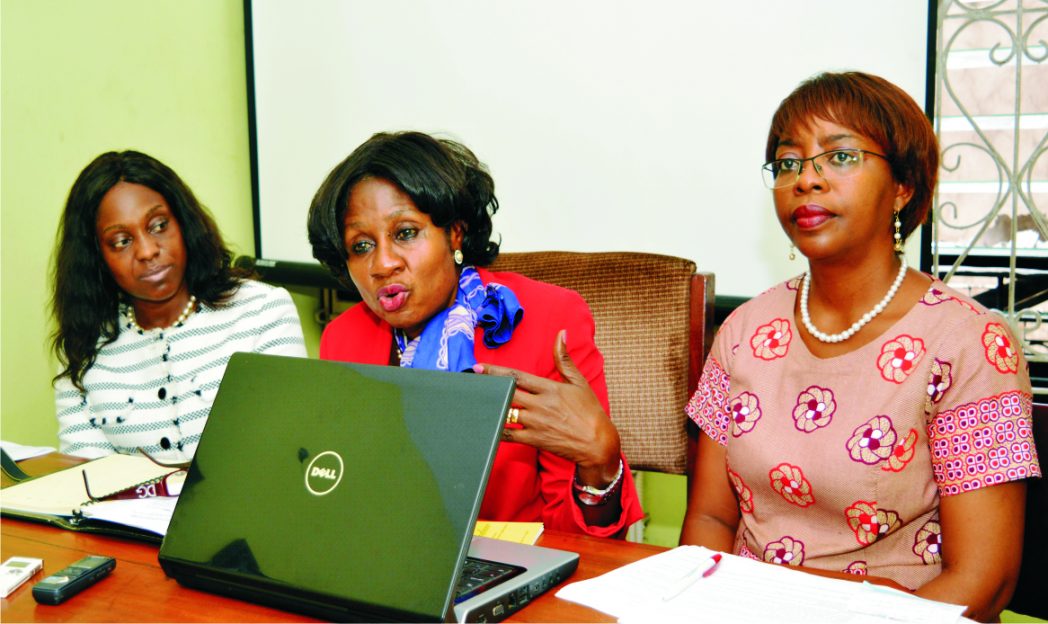
Malaria is all around
us.Many of us know someone who has either had malaria or we have experienced the symptoms ourselves. I recently dealt with it at home when my daughter fell sick with malaria, and as a physician, I see countless patients and their children struggling with the disease. But despite malaria’s seemingly universal nature, one thing I have noticed over the years is that malaria has a disproportionate effect on women.
Women are at highest risk during pregnancy, which can lead to severe complications for mothers and their babies. In Nigeria, the impact is devastating: malaria is responsible for 11 percent of all maternal deaths, in part because less than one in five pregnant women receive the recommended dose of lifesaving preventative treatment.
Our social structures exacerbate the challenges women face in protecting themselves from malaria. Women often lack access to the same resources as men, making it harder to afford preventative measures or malaria treatment. Many women do not have the education they need to fully understand malaria’s risks. As a result, too many women are not in the position to seek appropriate care when they or their children get sick.
All of these factors contribute to a vicious cycle that holds women back and allows malaria to persist. When women spend their income on malaria treatments, or miss work to care for themselves or a sick child,they have fewer resources to provide other necessities for their families – especially if they are the sole source of income. As women’s financial security falters, they have a harder time keeping their families healthy, making them more susceptible to infectious diseases like malaria.
We can end malaria in Nigeria if we make women a priority.
There are encouraging signs that we’re moving in the right direction. Several states offer free maternal and child health services and use antenatal clinics to distribute free insecticide-treated bed nets and preventative treatments. For women who can’t reach these clinics, many community-based organisations send volunteers door-to-door to help women get the services they need. Some malaria control programs collect comprehensive data on malaria’s burden on pregnant women.
This has to be the norm, not the exception.
We need local, regional and national strategies designed specifically to address women’s risks. This means tailoring awareness campaigns to emphasize malaria’s impacts on women and offer information on preventative measures and treatment options. These campaigns must also reach men, who can help their wives, mothers and sisters access care. Collecting wide-ranging data on malaria’s burden on all women – not just pregnant women – will ensure that these strategies are well-informed and address the various factors that drive women’s health decisions.
But it’s not enough to focus on the health-seeking behaviors of individuals. To address the root causes of malaria’s burden in our country, we also need to make sure that women don’t spiral into poverty when they or their children get sick. Our political leaders should prioritise making malaria interventions more affordable through financial programs that are geared toward women. Also, social safety nets, legal reforms and employment programs can help account for lost livelihood due to malaria illness.
Ultimately,developing these women-centric programs will require involving women in the design and implementation of malaria interventions in their communities. Women have insights into theirspecific barriers to care and are better prepared to create programs that reflect the intricacies of their everyday realities.As more women are empowered to step into leadership positions, these perspectives will help create more nuanced programs that work for them.
Putting women at the forefront of Nigeria’s malaria effort will go a long way toward placing national malaria elimination within our grasp. It will also yield impressive results for women’s standing in society. Reducing the burden of malaria would allow more women to complete school, remain in the workforce and participate in governance or decision-making – increasing their overall economic, social and political empowerment.
I want to see a future where my daughters can thrive. That future is irrevocably tied to the ability of all women in Nigeria to reach their full potential. Let’s not allow malaria to jeopardise it.
Nana A. Sa’id is a physician from Kaduna.
Nana A. Sa’id
Women
The Desire Of Every Woman In Marriage
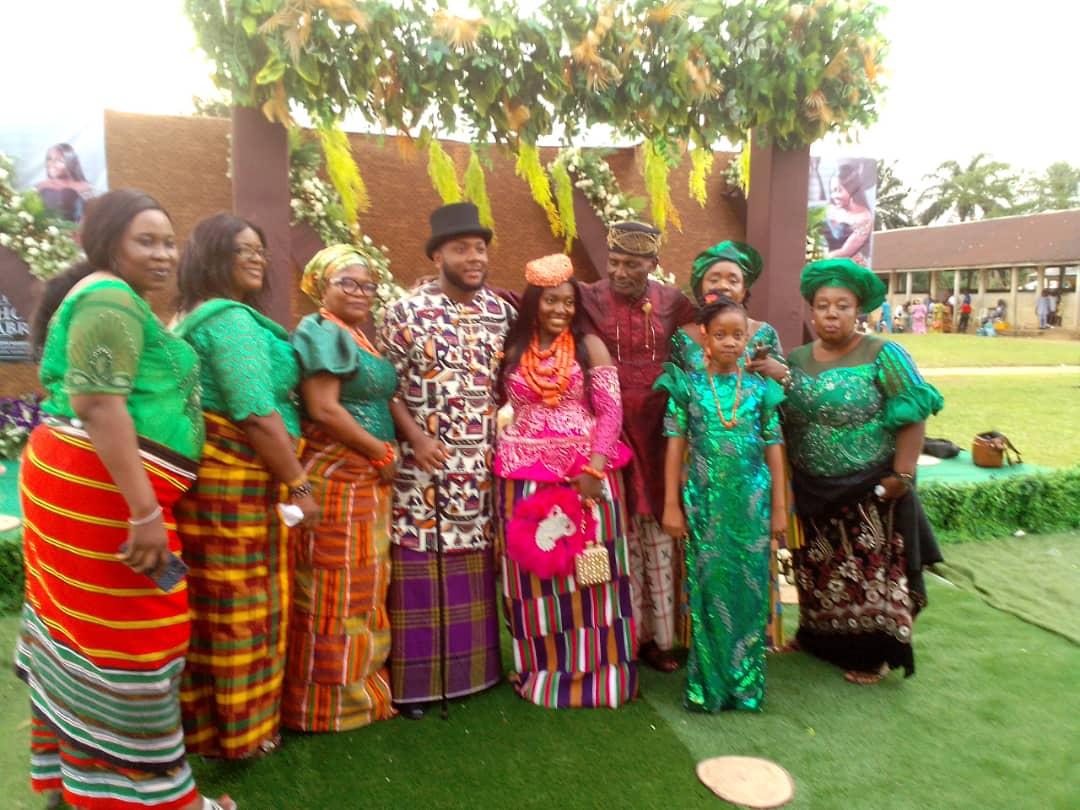
A woman needs a man that is honest, trustworthy, nice, loving and financially stable.
There are no two ways about finance in marriage. No matter the level of love, If there is no money, it is always difficult.
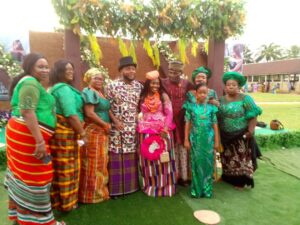
Referring to the Biblical belief in Genesis 3:Your desire shall be unto you……..
That is one aspect the woman expects her husband to take care of.
A woman wants a husband that is not lazy, at least helping to do one or two things. A man that is educated and intelligent.
She knows that there is a trait that her husband has. Traits of taking care of people, giving freely to people and caring for her family.
A woman wants to love a husband that has family interest at heart. A man that spends time with his family, remembering his family even as he is away from home.
A woman should not antagonise her husband because of one error or the other. No matter the level of offence he may have committed, you still show some love.
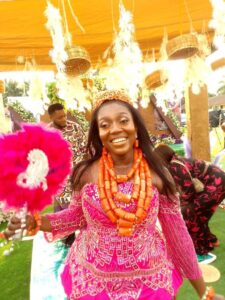
According to the Scripture, it is with wisdom that the women builds her home.
It is not as if the woman will not monitor her husband, but to certain limit. Don’t be a monitoring spirit. Don’t allow anything to take your joy.
Don’t loose trust in your husband.
The idea of checking your husband’s phone should be discouraged. The more you check your husband and his phone, the more you loose your joy.
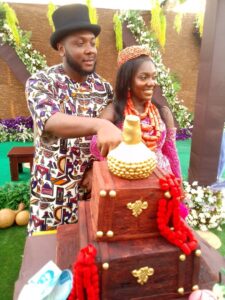
The home should not be a battle ground for a woman and man. A woman should be able to ask herself if the check on her husband will pay her any good.
Draw a line to a point where you checkmate your husband’s activities.
A woman wants a man that will love her and telling her you love her will be all she desires.
Eunice Choko-Kayode
Women
What Women Want In Yet-To -Be Husbands
What women want in their yet-to- be husbands matters a lot as far as marriage is concerned.
A woman desires a good fnancial prospect. Interestingly, some modern women place a man’s financial potential as more desirable than they have in the past.
Many decades ago, women ranked it lower on the list. It still comes in after items like love and maturity, but perhaps today’s women realise that a good economic partner is good husband material.
Good health has been an important characteristic for women through the 20th century and remains so these days. One might argue that because we’re living even longer, health plays a huge role in the success of a marriage. Women are anxious to know that their partners are healthy to be able to run the family together.
You discover that in most faith based organisations, would- be couples are mandated to go for medical tests to ascertain their health status as it concerns HIV/AIDS, Genotype and other related ones. This according to stakeholders is to ensure that couples raise healthy families.
Ambition has become less important to women over time, though it still being considered even if women nowadays are thriving in the workforce competing with the male folk. It may be because more women are thriving in the workforce, they want a husband who has earning power but are not looking for him to be the sole provider.
More women want husbands with pleasing disposition. They may not want a man who is always moody. A man who is always cheerful is whom they desire.
Surprisingly, a man’s likes do not rank as high on women’s list of wants as it used to. Until recently, women are more willing to accept a man for who he his, despite the inevitable mood he may be.
Sociability from both men and women rank very high on their marriag material list. And for both sexes, it has been steadily moving up the list for many years. The rise of the “love marriage,” a partnership based on attraction rather than practicalities (like wealth or status) might mean that married couples are more likely to be friends and have mutual circles of friends.
A lot of couples want to associate with others and then socialise. Attending parties of other friends forms part of their marriage requirements.
Women have placed education and intelligence top making it one of their most desirable male traits for decades. This timeline coincides with more and more women receiving college education themselves. Once education becomes important in women’s lives, it is a more attractive trait in potential husbands.
Of course when a woman is educated, she is likely to go for an educated man. When they are gainfully employed, their income boost the family affairs faster.
Today, women are much more attracted to men who are interested in home and family than they ever have been. Men who have desire for their home and children is whom they desire.
After a days job, a man will come home to ensure that his children are comfortable. Because most women today are expecting to be in dual-earner relationships, they want husbands who will be happy and willing to contribute at home. More women today even report that they hope he will take the lead at home.
A woman wants a man who is emotionally stable and mature. Growing big physically is not the issue but maturity in the heart.
Men, too, place a heavy emphasis on a potential wife’s emotional maturity, signaling that it is a key quality for a stable partnership. Women seem to look past appearance to the heart of the matter.
A woman wants a man who is not easily provoked. Dependable character is what some women want in marriage.
Women want husbands that they can count on, and this has not changed in recent years. Yes, women look to their spouses to be lovers and friends, they also want them to be supportive and trustworthy. They want to know that their husbands will be there and remain loyal. Men, too, desire dependable character from their yet-to be wives.
Mutual attraction and love from the first appearance is what they want till they become old.
The highest-rated characteristic women seek from men is mutual attraction and love. Some no longer look for a man who will provide everything, afterall they are also educated and are gainfully employed, they want to be in love.
For some women, even when the man do not provide household needs, the love shown on her is enough. When women had no job prospects and needed to marry, they desired love . The women’s movement has not only helped women pursue careers, it has also given them more choice in love.
Women
Echoes Of IWD : Need To Invest In Women
As this year’s Internatinal Women’s Day (IWD) has come and gone, there are calls from different quarters on the need to invest in women so that we can achieve accelerated growth.
It was, indeed, a thing of joy when Rivers Women Unite For Sim, took delivery of large quantities of sanitary towels and some bags of rice provided them for this year’s celebration.
Many young women expressed joy that they got such gesture since some of them have financial problems getting sanitary towels whenever they are on.
Some secondary school students were also lucky to have a share of the benefits. They also got some sanitary towels.
The Rivers State Commissioner for Women Affairs organised a platform to celebrate and honour the women for the remarkable jobs they perform in their homes and society.
Addressing women on the occasion, the Hon. Commissioner for Women Affairs, Dr. Roseline Apawari Uranta, noted that women from time immemorial have been great pillars in achieving remarkable heights and stressed that IWD across the globe is pivotal all women for the roles they play in bringing, nurturing and sustaining life.
Dr. Uranta said that IWD, which started in 1911 and celebrated annually on March 8, is a global day that provides women a platform to address economic inclusion, participation in political and public life.
She said the day was set aside to look into lack of access to education for the girl-child, gender-based violence, child marriage, child trafficking, harmful cultural practices as well as other challenges facing women around the globe.
The Hon. Commissioner, who described March 8 as a day to celebrate the socio-economic, cultural and political achievements of women, emphasised that it is a day that offers women the opportunity to reflect on progressive achievements.
Noting that it is an opportunity to call for change, she stressed that it is also an opportunity to celebrate acts of courage and every achievement made by ordinary women who did extraordinary things and are remembered in history.
She noted that the IWD2024 theme:”Invest In Women, Accelerate Progress”, is timely and apt because according to her, to achieve gender equality, we must ensure that the rights, responsibilities and opportunities of women do not elude them.
Her words: ” We must see investing in women as a human right issue and consider investing in women as a social tool to eradicate poverty since women are helpmeet in the homes while a handful are breadwinners in their respective families”.
The commissioner urged women to uphold the deliberate act of investing in themselves, be it furthering formal education, developing a new skill as well as learning a trade.
“Shun idleness, always find something positive and productive to do, regardless of your age, social status and financial capabilities”, she said.
In a paper presentation, Dr. Dabota God’swill Jumbo, reiterated that investing in women would attract good and positive dividends to herself and the society at large and noted that it is essential in addressing poverty, hunger and climate change.
The guest speaker said women need more opportunities in elective and appointive positions, hence the need to encourage and support them in politics.
According to her, when you invest in women, they will be able to create safer environment devoid of gender-based violence.
In a goodwill message, the spokesperson, Rivers Women Unite For Sim, Mrs Charity Deemua appreciated the organisers for making it possible for women to gather and celebrate themselves.
She commended those who created a day like March 8 of every year to celebrate women and regretted that the girl-child was seen as a second-class person decades ago.
The former commissioner, Rivers State House of Assembly Commission, described those who taught it wise for women to celebrate as conquerors, tough and strong.
International Association of World Peace Advocates, a world-class organisation with the United Nations, honoured different categories of women.
In Cross River State, 150 women were empowered with about N15m to boost their small and medium scale businesses.
According to stakeholders, the women empowerment is vital in addressing social, economic and political challenges and will make them self-reliant.
An NGO, Association of Professional Women Engineering Technologists (APWET), said it’s aim is to promote professional excellence among engineering personnel, advocating for women and girl-child education.
With what we saw in terms of response to women’s call on issues affecting them from relevant authorities, we are optimistic that the women will do better whenever they are empowered.
If we must kick out cervical, breast and other forms of cancer in women, underage marriage, prostitution, we must invest in women.
There were goodwill messages from National Council for Women Societies (NCWS), International Federation of Female Lawyers (FIDA), Medical Women Association of Nigeria (MWAN), Nigeria Copyright Commission (NCC, Nigeria Association of Female Journalists (NAWOJ), among others.
By: Eunice Choko-Kayode
-

 Sports5 days ago
Sports5 days agoNOC Applauds NFF, Falcons Over Olympic Games Qualification
-

 News5 days ago
News5 days agoRSG Decries Rot In Education Sector
-

 Politics2 days ago
Politics2 days agoGov Ododo Shows Up As EFCC Lays Siege On Ex-Gov Bello’s Home
-
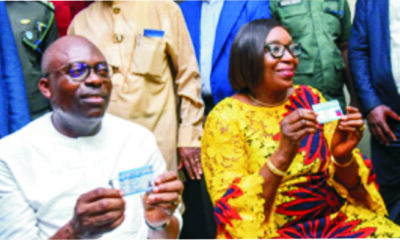
 News2 days ago
News2 days agoRivers Exco Approves N6.7bn For Okania-Ogbogoro Road Construction
-

 Environment5 days ago
Environment5 days ago‘Proposed Expansion Of Indorama Detrimental To Our Environment’
-

 Politics5 days ago
Politics5 days agoIPAC’s Role Preserving Nigeria’s Democracy – NSCDC
-

 News5 days ago
News5 days agoWe’re Not Recruiting, Says FRSC
-

 News2 days ago
News2 days agoNigeria Requires $15bn Annually To Close Infrastructure Gap -Don

